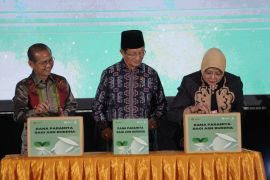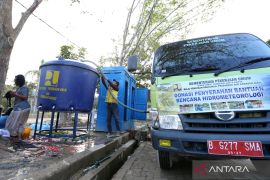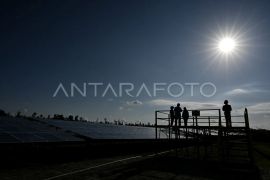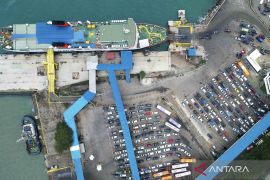Director-general of the Emirates News Agency (WAM) Mohammed Jalal Al Rayssi delivered the remarks in a statement received in Jakarta on Tuesday.
“The space industry was for long dominated by a handful of countries, with no Arab or Islamic countries making efforts to develop this futuristic sector,” he highlighted.
Contrary to popular belief, the UAE’s interest in space exploration began long before the launch of its first space mission in 2019 and dates back to the country’s establishment, when the UAE’s founding father, the late Sheikh Zayed bin Sultan Al Nahyan, met with NASA’s Apollo team.
The meeting served as a launchpad for the UAE’s plans to explore space, while the launch of the Thuraya Telecommunications Company in 1997 spawned the UAE’s thriving space sector, he said.
Other projects followed, culminating with the resolutions to establish the UAE Space Agency and the Mohammed bin Rashid Space Centre (MBRSC) in 2006, which were further strengthened with the launch of Al Yah Satellite Communications Company (Yahsat) in 2007.
“Leading these cumulative tireless efforts over a 25-year period were the UAE's own sons and daughters, who diligently pursued the knowledge and skills necessary to develop the industry in accordance with the leadership of the UAE's long-range plan to fully realize the potential and opportunities of this strategic sector,” he said.
Building on these pillars, the UAE's Science, Technology, and Innovation Policy integrated the space economy as a developmental project, aiming to bolster the country's competitiveness and develop national competencies in the field as well as establish a sustainable and robust space sector in the UAE.
“Driven by its firm belief in the importance of establishing a strong legislative and scientific foundation backed by the required financial and human resources to ensure its space sector's sustainability, the UAE issued the first of its kind law in the region to regulate space activities, including laws regulating space colonization activities,” he said.
Adding to its ongoing efforts, he informed, the country launched the 3-billion UAE dirham National Space Fund to drive investments in its space industry and finance future programs and projects.
Furthermore, the UAE established the first-ever space research center in the Middle East, allocating 100 million UAE dirhams over five years to develop its human capital and capabilities in the field.
The UAE's dedicated space exploration efforts, ranging from the establishment of the Thuraya Telecommunications Company and its recent space missions to the unveiling of its ambitious Mars 2117 Project, which aims to establish the first inhabitable human settlement on Mars by 2117, are far from a mere publicity stunt as some might think.
“They are rather a testament to the UAE's forward-looking vision to achieve excellence and restore the Arab world's ‘golden age,’ positioning Arab and Islamic countries once again among world leading countries, as well as to serve as an inspiration for them to travel to ‘infinity and beyond,’” Al Rayssi said.
Related news: UAE calls for climate finance reforms ahead of COP28
Related news: Riau Islands explores cooperation in tourism sector with UAE: Governor
Reporter: Azis Kurmala
Editor: Rahmad Nasution
Copyright © ANTARA 2023












